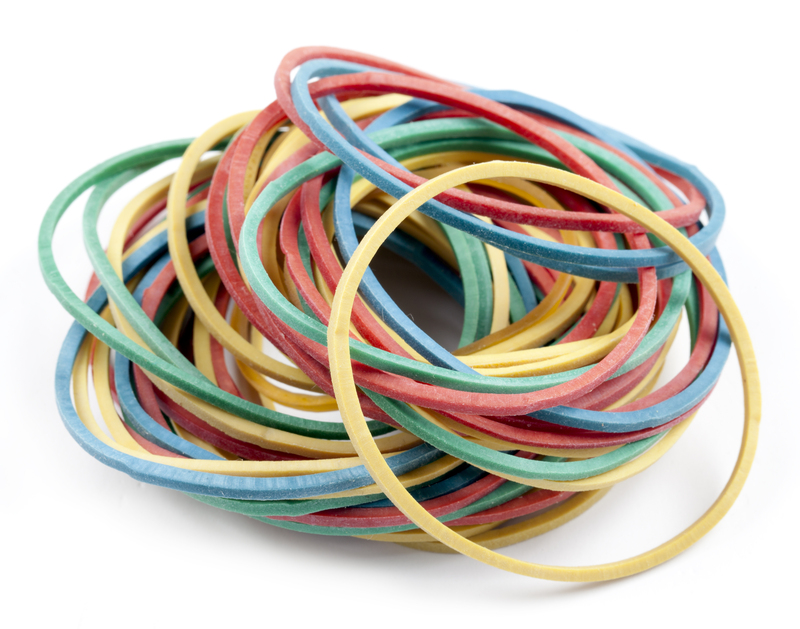Effortless Ways to Discard Plant Pots: An Eco-Friendly Guide
If you've ever set up a thriving home garden or enjoyed potted plants indoors, the chances are your collection of plant pots seems to multiply. With sustainability at the forefront of modern gardening, learning the effortless ways to discard plant pots without harming the environment--or cluttering your space--is a must. This comprehensive guide will explore simple, innovative, and eco-conscious solutions for getting rid of old plant containers effectively.
Why Proper Plant Pot Disposal Matters
Before diving into the best methods for discarding plant pots, it's crucial to understand why proper disposal is important. Many plant pots--especially plastic ones--are not biodegradable. They can linger in landfills for decades, releasing toxins and clogging up natural habitats.
- Environmental Impact: Improper disposal can contribute to pollution and wildlife hazards.
- Visual Clutter: Unused plant pots can pile up, taking up valuable space at home or in the garden.
- Resource Waste: Discarding pots incorrectly means missing opportunities for reuse or recycling.
Choosing eco-friendly ways to discard plant pots helps preserve resources, supports sustainable gardening, and keeps your surroundings tidy.

Identify Your Plant Pot Material
The first step in an effortless plant pot disposal process is identifying the material. Here are the most common types:
- Plastic: Cheap and lightweight but the hardest to decompose.
- Terracotta: Porous clay pots--natural but heavy and brittle.
- Ceramic: Glazed, decorative pots enjoying a long lifespan.
- Biodegradable/Compostable: Made from plant fibers, coconut coir, or peat.
- Metal: Often used for decorative purposes.
- Concrete: Durable with a modern aesthetic, less common.
Each material requires unique disposal or recycling approaches, which we'll explore below.
1. Reuse: The Greenest Way to "Discard" Plant Pots
The simplest and most sustainable way to discard plant pots is by not discarding them at all! Repurposing is both creative and practical.
Creative Reuse Ideas
- Plant Propagation: Use smaller pots to propagate seedlings or cuttings for gifts or garden expansion.
- Home Storage: Repurpose pots as organizers for tools, craft supplies, or kitchen utensils.
- Decorative Displays: Paint and upcycle pots into unique indoor or outdoor decor.
- Yard Drainage: Old terracotta and cracked ceramic pots make excellent drainage additions at the bottom of larger planters.
- Craft Projects: Let kids (or your own artistic side) paint and design pots to create personalized planters or candle holders.
Reusing is effortless, cost-effective, and embodies the zero-waste lifestyle so prized among modern gardeners.
2. Recycle: Smart Sorting for a Clean Planet
When reuse isn't practical, recycling is your next best option. But recycling options for plant pots can depend on local regulations and the pot's material.
How to Recycle Plastic Plant Pots
- Check Resin Code: Flip the pot and look for the resin identification code. Most recycling centers accept plastics labeled #2 (HDPE) or #5 (PP).
- Clean Thoroughly: Remove soil, roots, and labels, as dirty pots can contaminate recycling streams.
- Contact Local Facilities: Reach out to your municipality's recycling center or waste management website to confirm plant pot recycling practices.
- Garden Centers: Many garden centers (such as Lowe's, Home Depot, or local nurseries) offer plastic pot recycling drop-off bins.
Terracotta, Ceramic, and Concrete Pot Recycling
- Broken Pots: Crushed to use as substrate for driveways, patios, or pathways.
- Masonry/Building Centers: Some facilities accept clean, unglazed terracotta or ceramic shards for use in drainage or landscaping projects.
- Art Projects: Donate chips and shards to local art classes or studios for mosaic and sculpture materials.
Note: Not all municipal programs accept ceramics, so research community guidelines before placing in curbside bins.
Metal and Biodegradable Plant Pots
- Metal Pots: Scrap metal recyclers will often take clean small metal pots. Remove any adornments or handles first.
- Biodegradable Pots: Compost them! Shred or break them into small pieces and introduce into your home compost pile or municipal green waste bin.
3. Donate: Give Old Plant Pots a New Life
If you have accumulated a surplus of plastic, ceramic, or terracotta pots--especially in good shape--consider giving them away.
Where to Donate Used Plant Pots
- Community Gardens: Nonprofits and school gardens often welcome extra containers.
- Schools and Daycares: Teachers use pots for gardening, crafts, and science projects.
- Garden Centers: Some accept donations for their own reuse or community programs.
- Online Communities: Try Facebook Marketplace, Craigslist, or neighborhood apps such as Nextdoor to list free pots for pickup.
- Thrift Stores or Nonprofits: Organizations like Habitat for Humanity may accept bulk donations.
By donating, you save landfill space and help other gardeners thrive without extra cost--a win-win solution!
4. Upcycle: Turn Unwanted Pots Into Valuable Garden Features
Don't have space or time to find new homes for your pots? Upcycling can be an easy and satisfying way to discard plant pots while enhancing your landscape.
- Garden Markers: Break small terracotta pots and use the shards to label different plants in your vegetable bed.
- Fairy Gardens: Repurpose old pots into whimsical mini-garden scapes for kids (or playful adults).
- Insect Hotels: Stack or fill cracked pots with twigs and pine cones to create shelters for beneficial insects.
- Water Features: Stack and seal pots to create unique tabletop fountains or birdbaths.
- Pathway Edging: Bury broken or half pots along garden beds to create decorative and functional borders.
5. Professional Plant Pot Collection and Disposal Services
Short on time or dealing with bulk quantities of pots? Some cities or private companies offer collection services.
- Local Waste Management: Schedule a bulk waste collection for large numbers of pots (verify accepted materials ahead of time).
- Specialty Recycling Events: Cities sometimes host dedicated collection days for hard-to-recycle plastics and garden supplies.
- Nonprofit Drives: Watch for seasonal plant pot drives by local garden clubs or environmental groups.
While there may be a small fee for these services, the convenience can make them a great option for busy homeowners or commercial gardeners.
6. Responsible Landfill Disposal
In the rare case that recycling, donation, or reuse is not possible, ensure plant pots are prepared for responsible landfill disposal:
- Remove Soil: Shake out any leftover dirt to minimize contamination.
- Stack Pots: Nest them inside one another to conserve landfill space.
- Label Large Loads: Inform your local landfill of bulk drop-offs; some may have special disposal protocols.
Remember, landfilling should be a last resort when replacing or discarding plant pots.
Effortless Tips to Reduce Future Plant Pot Waste
Getting rid of plant pots may feel overwhelming, but you can limit future waste with a few thoughtful steps:
- Choose Biodegradable Pots: Select peat, coir, or paper pots for your new plants--these compost naturally after use.
- Buy Bare Root Plants: Many nurseries now offer bare root or plug plants for less packaging.
- Join Pot Return Programs: Ask local nurseries if they have return incentives or in-store recycling for plant containers.
- Quality Over Quantity: Invest in higher-quality pots that last for years and reduce replacement cycles.
- Start Seedlings in Recycled Containers: Use anything from yogurt cups to egg cartons before purchasing new pots.

FAQs: Effortless Solutions for Discarding Plant Pots
- Can I recycle all plastic plant pots?
Answer: Not all plastics are accepted. Only pots with recycling codes #2 or #5 are widely recyclable. Check with your local facility. - What do I do with cracked or broken plant pots?
Answer: Break them further and use as garden substrate, drainage, or donate for art projects. Only landfill as a last resort. - Are biodegradable pots really compostable?
Answer: Yes--if they're made from organic materials like coir, peat, or paper. Break them up and add to your compost pile.
Conclusion: Effortless, Responsible Plant Pot Disposal Is Within Reach
No matter how many old pots accumulate over time, discarding plant pots "effortlessly" can be easy, environmentally sound, and even fun. Choose from convenient options like reuse, local recycling programs, donations, upcycling, or composting. With a little planning, you can keep your space tidy, help fellow gardeners, and nurture the planet.
Ready to clear out your garden shed? Try these effortless ways to discard plant pots, and make your green thumb even greener!